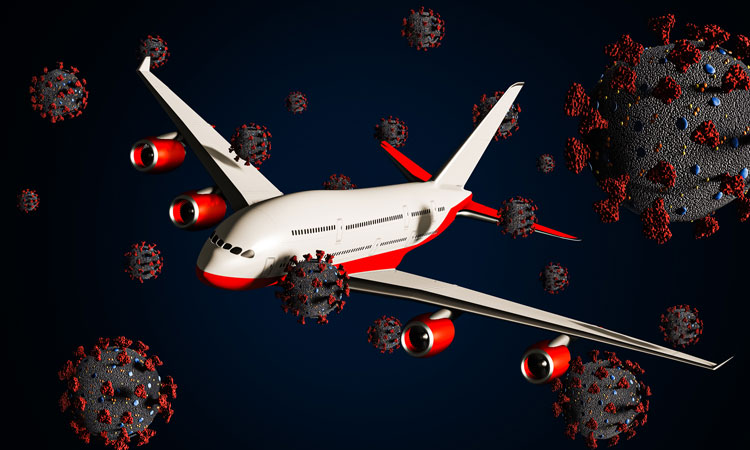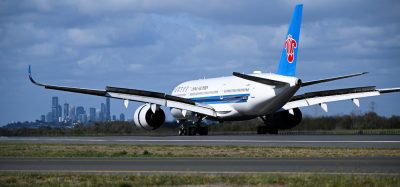Impacts of COVID-19 on aviation and the airport business
- Like
- Digg
- Del
- Tumblr
- VKontakte
- Buffer
- Love This
- Odnoklassniki
- Meneame
- Blogger
- Amazon
- Yahoo Mail
- Gmail
- AOL
- Newsvine
- HackerNews
- Evernote
- MySpace
- Mail.ru
- Viadeo
- Line
- Comments
- Yummly
- SMS
- Viber
- Telegram
- Subscribe
- Skype
- Facebook Messenger
- Kakao
- LiveJournal
- Yammer
- Edgar
- Fintel
- Mix
- Instapaper
- Copy Link
Posted: 22 May 2020 | Angela Gittens - ACI World | No comments yet
Angela Gittens, Director General of ACI World, details how COVID-19 has impacted airport business, and the recovery measures available to the industry.


The ongoing COVID-19 pandemic has resulted in a full-scale crisis with the imposition of travel restrictions and suspension of flights in a global effort to contain the spread of the virus. Aviation, and in particular airports, have been brought to a virtual halt and the industry is in survival mode, crippled by the loss of traffic and revenues.
Due to the fast and radical shifts in the world and the air transport industry, ACI continues to periodically update the impact of COVID-19 on airport business. As of 5 May 2020, ACI World estimates a reduction of more than two billion passengers at the global level in the second quarter of 2020 and more than 4.6 billion passengers for all of 2020.
The impact of COVID-19 has thus resulted in an existential threat to airports and to the aviation industry at large
Turning to economics, airport revenue streams have been paralysed by the unprecedented drop in aviation and commercial activity. The estimated decline in total airport revenues on a global scale is estimated to be $39.2 billion (USD) in the second quarter and more than $97 billion for 2020.
Airports must continue to meet their capital expenses obligations as they remain characterised by predominantly high fixed costs necessary for maintaining and operating the infrastructure components of the airport, including runways, taxiways, aprons, parking stands and terminal buildings. The impact of COVID-19 has thus resulted in an existential threat to airports and to the aviation industry at large.
Airports have adopted immediate measures to manage the pandemic as shown in ACI World’s recently-released ‘Airport Operational Practice – Examples for Managing COVID-19’, which describes such measures implemented at major international airports, gathered from across ACI’s membership. It is available, free of charge, on the ACI World website.
These measures will ensure that financial assistance does not benefit one part of the industry over another
Indeed, the subject matter experts from World and Regions have come together to establish a pipeline of free support and information to assist members in navigating this period. As the industry moves into recovery mode, the information and technical guidance that we package and provide will be tailored towards supporting these efforts.
In this regard, ACI has just released a roadmap for the airport industry’s recovery in response to the COVID-19 pandemic. The ‘Policy Brief – COVID-19: Relief Measures to Ensure the Survival of the Airport Industry’ – outlines exceptional measures to provide policymakers with a comprehensive toolkit of solutions to ensure that the airport industry can be sustained through the crisis and lay the foundation for recovery.
Briefly, these include the protection of airport charges and revenues, tax relief, concession fee waiver, the temporary suspension of slot usages, the continuity of air cargo operations and comprehensive financial relief. These measures will ensure that financial assistance does not benefit one part of the industry over another.
ACI pledges to support its members through the global crisis and to do its part in building a thriving and resilient aviation industry
In addition, ACI is part of ICAO’s Council Aviation Recovery Task Force (CART), comprised of a number of its Member States, international organisations, such as WHO, and industry bodies. Over the coming weeks, the group will agree on a series of recommendations focusing on the restart and the recovery phases of getting the aviation industry moving again.
The bottom line is that airports are important engines of economic growth, wealth creation and employment. ACI pledges to support its members through the global crisis and to do its part in building a thriving and resilient aviation industry.
Related topics
Aeronautical revenue, Airport crisis management, COVID-19, Economy, Non-aeronautical revenue, Regulation and Legislation


















